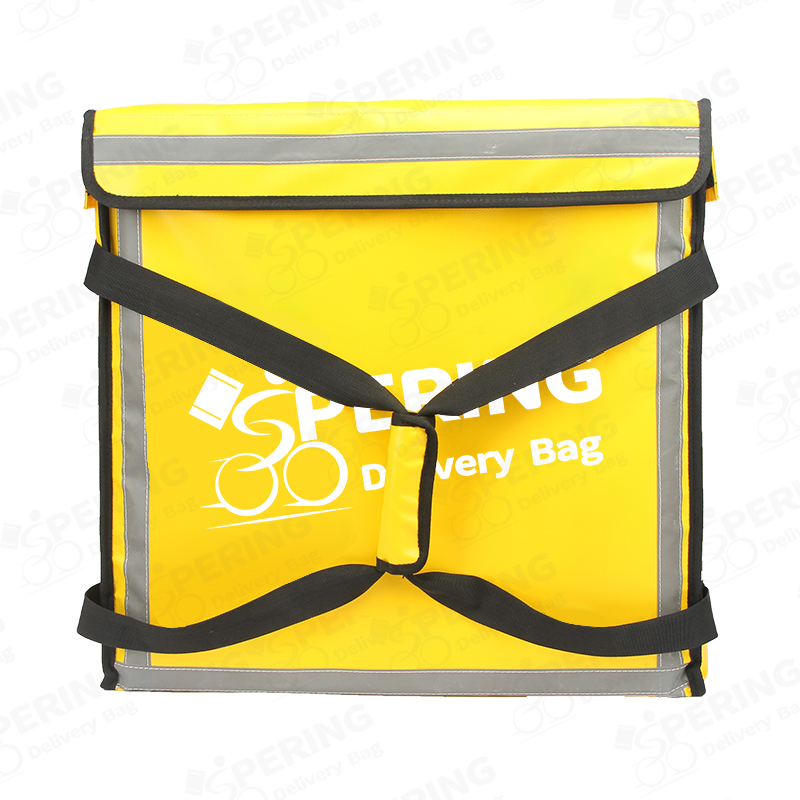




The process of customizing food delivery bags (or delivery bags) typically involves several steps, from initial needs analysis to the final product delivery. Each step requires careful planning and execution. Below is a typical process for customizing food delivery bags, applicable to restaurants, food delivery platforms, or related businesses.
Understanding Requirements: First, the business or customer needs to clearly define the requirements for the custom food delivery bag. This includes:
Functionality of the delivery bag: Does it need insulation, freshness preservation, leak resistance, durability, etc.?
Material choice: What material is preferred (e.g., plastic, paper, fabric, eco-friendly materials, etc.)?
Size requirements: The number of food items the bag needs to carry, its size, and capacity.
Design requirements: Whether the delivery bag needs custom colors, patterns, logos, or text.
Budget Range: Based on the complexity of the requirements and the type of product, confirm the budget for the custom bags.
Finding Suppliers: Based on the product requirements, search for experienced packaging suppliers. Suppliers can be found through online research, industry trade shows, recommendations, etc.
Supplier Evaluation: Choose suppliers with custom manufacturing experience. Assess their production capabilities, delivery times, quality control, and pricing.
Requesting Quotes and Samples: Get quotes from multiple suppliers and compare pricing and quality. Request samples from suppliers to confirm the quality and design.
Providing a Design Plan: Based on the restaurant’s branding and the functional needs of the food delivery bag, designers or suppliers will provide initial design plans. These designs may include the bag's appearance, colors, materials, size, brand logo, and patterns.
Modifications and Design Confirmation: The business provides feedback on the design and suggests changes until the final design is satisfactory. This step may involve multiple rounds of communication to ensure the design meets expectations.
Confirming Technical Requirements: Confirm the technical requirements of the bag, such as printing methods (e.g., heat transfer printing, silk screen printing), material properties, tensile strength, insulation performance, etc.
Production Sample Confirmation: Before mass production, suppliers typically create one or more samples for the business to review. These samples need to be confirmed for appearance, functionality, size, and other factors.
Sample Testing: The business may conduct basic tests, such as weight-bearing tests, insulation tests, leak tests, etc., to ensure the quality and practicality of the bags.
Contract Signing: After confirming the sample, both parties sign a formal contract outlining prices, delivery times, payment methods, and other terms.
Production Scheduling: Suppliers will begin mass production based on the business's order. This typically involves confirming production cycles and delivery times. The supplier may provide regular updates on production progress.
Quality Control: During production, strict quality control should be in place. The business can request inspection reports or send staff to inspect the quality of the production process.
Packaging and Shipping: After production is completed, suppliers package the delivery bags and arrange shipping. Suppliers usually offer different logistics options, and the business can choose the most suitable method (e.g., sea, air, or land shipping).
Tracking Logistics: The business can track the shipment status via tracking information provided by the logistics company to ensure timely delivery.
Product Inspection: Upon receipt of the delivery bags, the business needs to inspect the products to check if the quality, quantity, appearance, and functionality meet the contract requirements.
Resolving Issues: If any issues are found, the business can negotiate with the supplier for compensation or product replacement based on the contract terms.
After-Sales Service: Some suppliers offer after-sales services to help resolve issues that may arise during shipping or usage, or provide technical support during the product’s lifecycle.
Start Using: After product acceptance, the custom delivery bags can be put into actual use to support the business’s food delivery services.
Feedback and Adjustments: The business can provide feedback based on actual usage, and suppliers may make adjustments or optimizations based on the feedback.
Sustainability: With increasing pressure for environmental protection, many businesses and consumers prefer food delivery bags to be more eco-friendly. When customizing delivery bags, consideration should be given to using biodegradable materials or other sustainable options.
Durability and Insulation: For businesses that require higher food safety and quality standards, functionality like insulation, heat resistance, pressure resistance, and durability is crucial.
Convenience and Usability: The design of the delivery bags should not only meet food packaging needs but also consider convenience during the delivery process, such as ease of handling by delivery riders and ease of use by customers.
Brand Promotion: The custom delivery bag is a direct point of contact with customers. A unique design that aligns with the brand's image can help improve brand recognition and increase consumer goodwill.
Plan Ahead: Customizing food delivery bags takes time, so businesses should plan ahead to avoid delays in delivery due to lengthy production cycles.
Choose the Right Supplier: The right supplier not only ensures product quality but also offers extra design support and optimization advice.
Discounts for Bulk Orders: Generally, bulk custom orders of food delivery bags come with discounts, so businesses may plan the order quantity based on sales forecasts.
By following the above steps, businesses can successfully complete the customization of food delivery bags, ensuring that the product meets functional needs, enhances brand image, and meets sustainability and environmental requirements.
email:risk.chan@peringbags.com
whatsapp:+8619066576521
Add : 15th, Fuyu Road, Qiling Village,Shiling Town ,Huadu District ,Guangzhou
+86 186-8037-6156(Iverson Cao)
Iverson@peringbags.com